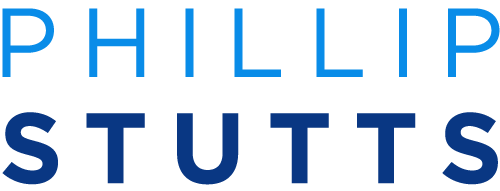Is big tech censorship out of control?
Clearly yes.
You see, two huge stories have emerged in the last few weeks that portend a scary future for using social media platforms to market our businesses.
Let me tell you what happened…
Justin Donald wanted to spread his unique financial message to the average investor. He hit it big.
His recently released book, “The Lifestyle Investor: The 10 Commandments of Cash Flow Investing for Passive Income and Financial Freedom,” landed #1 on the Wall Street Journal’s best-seller list.
Pretty cool, right? Well, here is something that’s not so cool. It almost didn’t happen.
As Justin was planning to launch his book, he needed to get it loaded onto Amazon’s platform for sale.
Amazon refused.
Let me clarify. Amazon refused to put Justin’s book on their platform because he had dared to describe (in his book) how he invested and made money during the COVID-19 pandemic.
Amazon’s explanation?
They said Justin was not a medical professional, and he wasn’t allowed to even use the following words in his book: “pandemic,” “Covid,” “COVID-19,” and “coronavirus”.
I’m not making this up.
Even though Justin was only using those medical terms to address how his investment portfolio performed during the pandemic, Amazon refused to budge. So he removed the terms from his book.
Utterly ridiculous.

And the second story is even worse. Check this out…
It involves an incredible charity called the Emerald Coast Children’s Advocacy Center (ECCAC) whose mission is to provide support services for children that have been sexually or physically abused, neglected or assaulted.
What was ECCAC’S social media crime?
Facebook categorizes ECCAC as a “social issue organization,” and Facebook has banned ads for these types of nonprofits (since October 27, 2020).
ECCAC was unable to run a digital fundraising membership campaign to end 2020 (which was the most challenging year in their history due to the pandemic). With Facebook’s “ban” still in place, ECCAC will also miss out on their online spring fundraising.
Bottom line: A charity that needs donors to fund their efforts to save sexually and physically abused kids from harm, is being banned from promoting their work to grow supporters and their community on Facebook.
This is actually happening.
Finally, you may have read my own issues with Facebook banning my marketing book because I used the words “elect presidents” in my subtitle. I wrote about it here and I even appeared on Fox News recently to discuss it:
Over the past two years, I’ve laid out my belief that social media is coming upon a big disruption.
Whether it happens in the next year or five years, I’m more convinced than ever that it’s coming.
Here are two tips you need to take away from this story:
1. Since 2018, political advertisements have been subjected to the scrutiny of the social media police. You might think that’s a great idea (everyone hates those crazy political ads!) until you realize that it now extends to certain charities — like ECCAC. It only took two years for these policies to seep into the nonprofit and corporate marketing world. The tech oligarchs don’t care what your intent is, they will decide what ad, what message or what company triggers their algorithm and thus can determine your fate. Right or wrong — doesn’t matter.
My tip? You might believe that big tech censorship is a good thing right now, but the longer you stand for it, it will eventually find you (you can say the same thing regarding “cancel culture,” too). So, take a stand and speak out. Stop letting the craziest voices on twitter make the rules that will negatively affect your business in the future.
2. Can Congress stop this blatant censorship? The law in place right now, called “Section 230 of the Communications Decency Act,” basically gives the social media companies legal immunity (over their users’ words and actions). This has given those social media companies the leverage to police speech. A few Democratic U.S. Senators are trying to right some of these wrongs (with a proposal called the SAFE TECH ACT). Still, unfortunately, it falls short of holding big tech accountable and might actually give these platforms more power over you and your business’ message, data and ad dollars. It’s a fucking scary time gang.
My tip? Email your U.S. Senator, ask questions and demand that tech censorship stop. You can find your U.S. Senator’s email here.


